Disclaimer: This article should not be taken as medical instruction. Always consult a professional for personal health decisions.
🤿 Want a deep dive with more detail? Read the full in-depth guide to GLP-1 hair loss.
Why Is My Hair Falling Out?
If you’ve been losing weight on a GLP-1 medication like semaglutide (Ozempic®/Wegovy®) and noticing extra hair in your brush, you’re not alone. Many people on GLP-1 agonists have reported thinning hair a few months into treatment.
It can be alarming, but the good news is that in most cases this shedding is temporary and related to rapid weight loss – not permanent damage to your follicles.
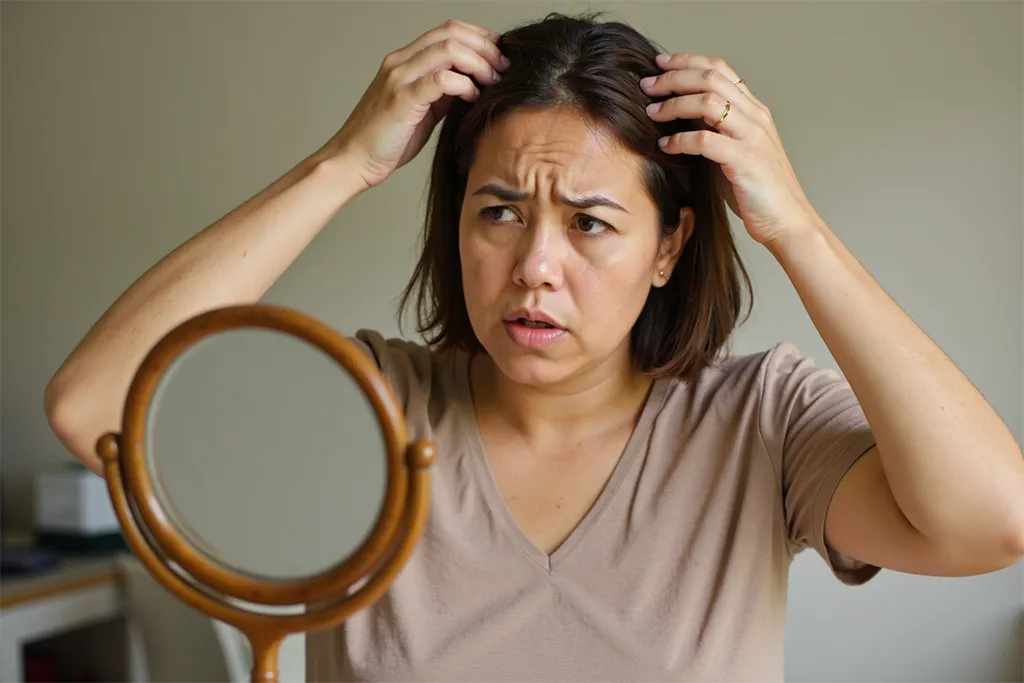
Hair loss can feel scary, but for most people on GLP-1s, it’s temporary and treatable.
How Common
Are Hair Loss Worries?
Hair loss concerns among GLP-1 users are more common than you might think. Online forums are filled with posts about semaglutide hair loss and people swapping stories (it’s not just you!).
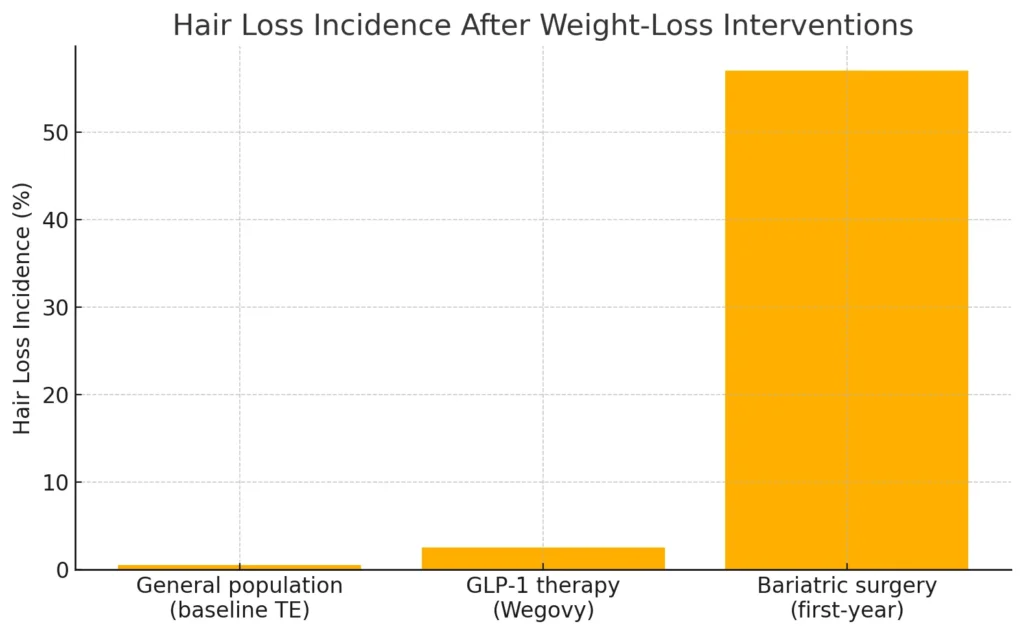
GLP-1 hair loss is rare next to surgery-related shedding
Even the FDA has taken notice: in late 2023 they flagged “alopecia” (hair loss) as a potential safety issue with GLP-1 drugs FDA. So yes: hair loss on GLP-1 medication is a real and pretty common concern (and it’s being taken seriously).
💡 Fun Fact 💡
Hair loss isn’t just a “men’s issue”. Women make up about 40% of hair loss sufferers NCOA.
Is There Really a Link Between
GLP-1 and Hair Loss?
Does the GLP-1 medication itself make your hair fall out? Probably not directly; it’s more about the fast weight loss your body is experiencing. Large, rapid weight drops (from bariatric surgery or potent weight-loss drugs) can spur temporary hair shedding. And we have data: about 3% of people on high-dose semaglutide (Wegovy) reported hair loss in clinical trials (vs ~1% on placebo), and nearly 6% of those on tirzepatide (Mounjaro) had hair loss (vs ~1% on placebo)NBCNEWS.
In short, there *is* a link – but it appears the weight loss itself is the trigger, not a direct effect of the drug on your hair follicles.
To learn more about how GLP-1 Medications, read our article that dives deeper into how GLP-1 medications work in the body.
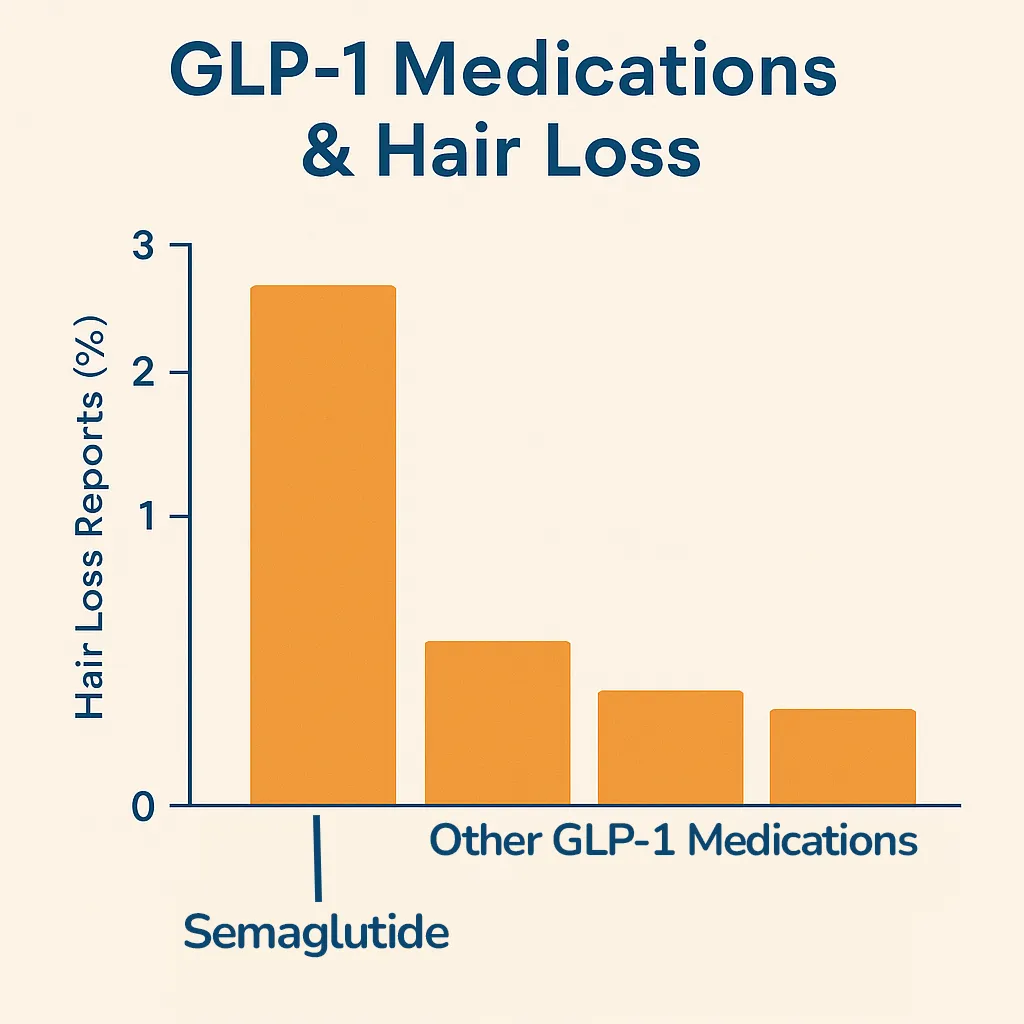
Hair loss is more common with semaglutide than with other GLP-1 medications.
Why Would Weight Loss
Make Your Hair Fall Out?
Rapid weight loss is a physical stress on the body. After a major shock or change, your body sometimes responds by shedding hair – a phenomenon called *telogen effluvium* (temporary hair shedding due to stress). More hair follicles than usual shift into a resting/shedding phase. The excess shedding usually starts a couple of months after the trigger and lasts only a few months GOODRX.
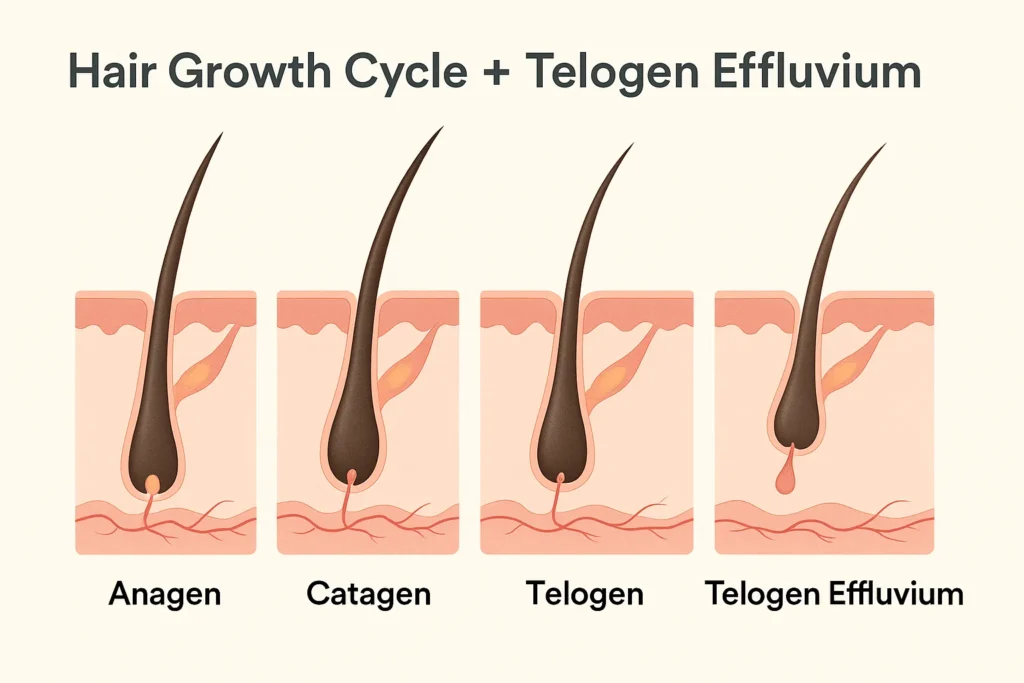
The good news is it’s temporary – once your body adapts, your hair should start to grow back. For example, not getting enough protein, iron, zinc, or other nutrients (due to eating less) can further worsen hair loss PUBMED.
Preventing Hair Loss on GLP-1
You can’t completely prevent hair loss while losing weight, but there are steps that can help keep your hair as healthy as possible during your GLP-1 journey:
Maintain Good Nutrition: Eat a balanced diet rich in protein, vitamins, and minerals.
Lose Weight at a Moderate Pace: If possible, aim for a steady, gradual rate of weight loss instead of a very rapid drop. Slower weight loss gives your body time to adjust and may reduce your hair loss risk.
Manage Stress: High stress can exacerbate hair shedding. Prioritize good sleep, relaxation, and self-care to keep stress levels in check.
Gentle Hair Care: Treat your hair kindly. Avoid harsh chemical treatments, excessive heat styling, and tight hairstyles.

What If You’re Already Experiencing Hair Loss?
Already noticing your hair thinning or shedding? Don’t panic! Here’s what you can do:
- Give It Time: This type of hair loss is temporary. Hair often starts to regrow within about 3–6 months of the initial shed as your body stabilizes GOODRX. It may take patience, but your hair should bounce back.
- Rule Out Other Causes: See your doctor to make sure nothing else (like thyroid or hormone issues) is causing your hair loss.
- Consider Treatments: Ask your provider about using topical minoxidil (Rogaine®) to help spur regrowth.
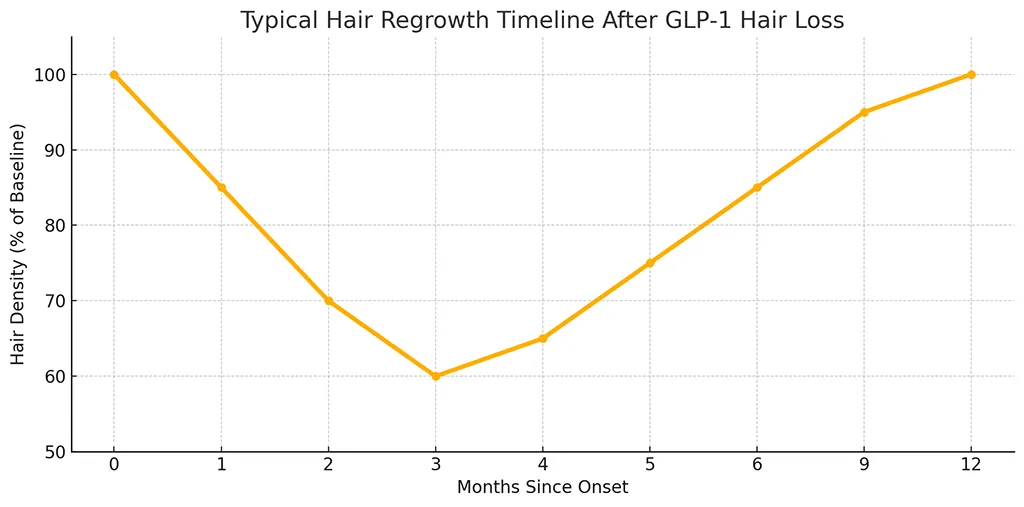
Most GLP-1 hair loss regrows within 6–12 months if triggers are addressed
💡 Fun Fact 💡
Even if your GLP-1 curbs your appetite, make sure you get enough protein and key nutrients. Hair is made of protein, and not eating enough (or becoming deficient in iron, zinc, vitamin D, etc.) can worsen hair loss PUBMED.
Embracing a Healthier You: Hair and All
Losing some hair can be scary, but remember the big picture: you’re getting healthier, and this side effect is usually temporary. Stick with your plan and be patient. Within a few months your hair should be back to normal, and you’ll be glad you stayed the course.
A short-term trade-off of thinner hair is worth the long-term benefits. Stay positive; you’re not alone!
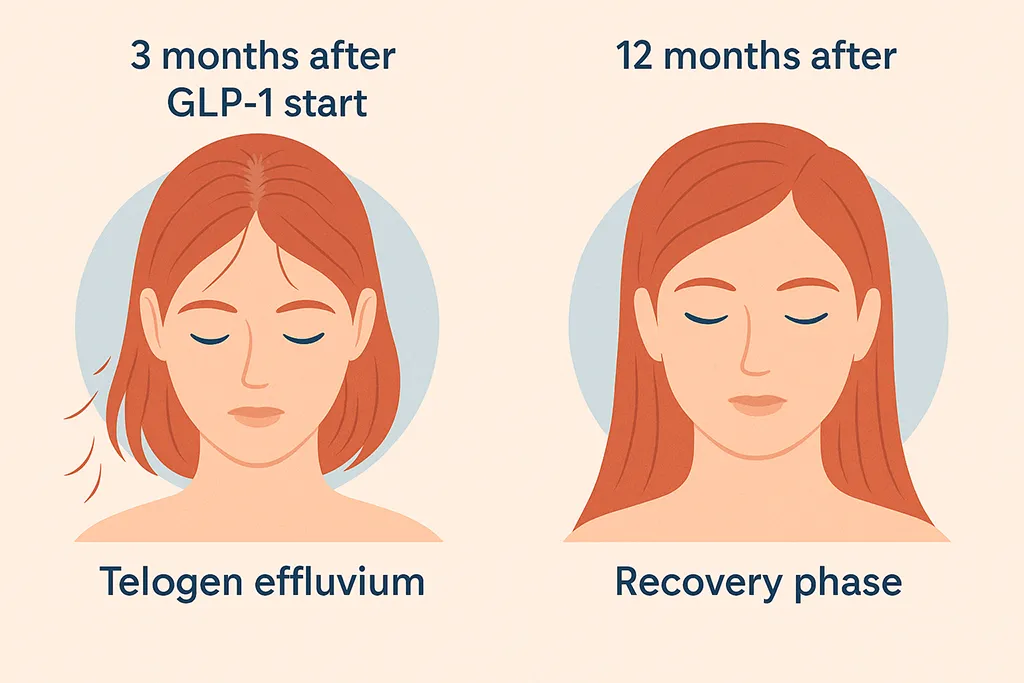
Hair loss can feel scary, but for most people on GLP-1s, it’s temporary and treatable.
Disclaimer: This article is intended for informational purposes. It is not medical advice. Consult a healthcare professional for guidance on weight loss or any medical treatment.
Cited Sources
National Council on Aging. Hair Loss Facts & Statistics. NCOA
NBC News. Weight‑Loss Drugs and Hair Loss. NBCNEWS
FDA. Potential Safety Signal: Alopecia in GLP‑1 Users (FAERS Q3 2023). FDA
GoodRx. Telogen Effluvium: Causes and Timeline. GOODRX
PubMed. Hair Loss After Metabolic and Bariatric Surgery. PUBMED
Healthline. Saxenda: Side Effects and How to Manage Them. HEALTHLINE








